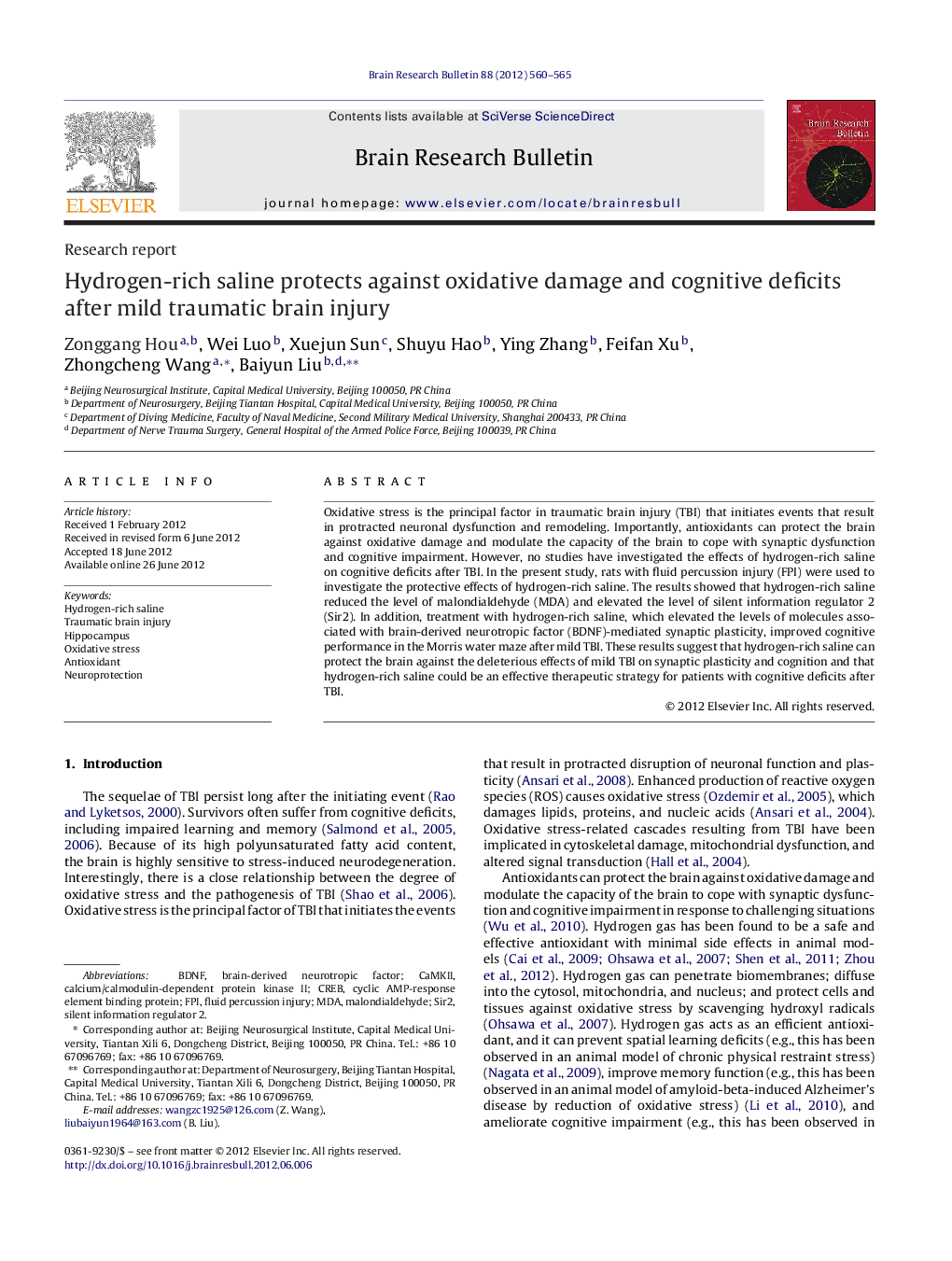| Article ID | Journal | Published Year | Pages | File Type |
|---|---|---|---|---|
| 6261995 | Brain Research Bulletin | 2012 | 6 Pages |
Oxidative stress is the principal factor in traumatic brain injury (TBI) that initiates events that result in protracted neuronal dysfunction and remodeling. Importantly, antioxidants can protect the brain against oxidative damage and modulate the capacity of the brain to cope with synaptic dysfunction and cognitive impairment. However, no studies have investigated the effects of hydrogen-rich saline on cognitive deficits after TBI. In the present study, rats with fluid percussion injury (FPI) were used to investigate the protective effects of hydrogen-rich saline. The results showed that hydrogen-rich saline reduced the level of malondialdehyde (MDA) and elevated the level of silent information regulator 2 (Sir2). In addition, treatment with hydrogen-rich saline, which elevated the levels of molecules associated with brain-derived neurotropic factor (BDNF)-mediated synaptic plasticity, improved cognitive performance in the Morris water maze after mild TBI. These results suggest that hydrogen-rich saline can protect the brain against the deleterious effects of mild TBI on synaptic plasticity and cognition and that hydrogen-rich saline could be an effective therapeutic strategy for patients with cognitive deficits after TBI.
⺠The study examines the effect of hydrogen-rich saline on cognitive deficits after traumatic brain injury (TBI). ⺠Hydrogen-rich saline can protect against oxidative damage and cognitive deficits. ⺠Hydrogen-rich saline may be effective for patients with cognitive deficits after TBI.
